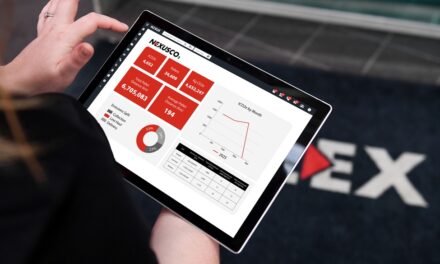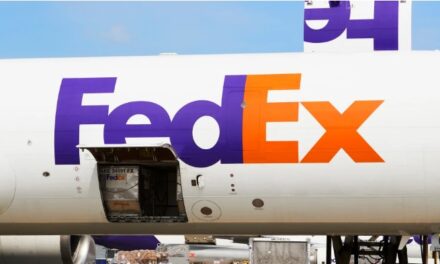
FedEx eyes growth markets and new products
FedEx Express will continue to invest in growth markets in Europe and in broadening its portfolio of services, and has no plans to scale back in the region due to the worldwide economic situation.
While FedEx already had a strong position in the intercontinental market, it had also started to move into domestic markets such as in the UK and India, Robert Elliott, FedEx Express President, Europe, Middle East, Africa and Indian subcontinent, said. In addition, the US group had made acquisitions in the Czech Republic, Poland and Hungary in recent years. “We expect more customers to be looking towards the east,” he commented. FedEx would also look more closely at emerging markets such as Turkey and the Middle East, he added.
Michael Mühlberger, FedEx Express Vice President Operations Central and Eastern Europe, said FedEx was seeing growth in Central and Eastern Europe countries as they generated more imports and exports, while it also aimed to expand its cooperation with its agent in Russia.
FedEx Express will continue to invest in growth markets in Europe and in broadening its portfolio of services, and has no plans to scale back in the region due to the worldwide economic situation, senior executives told CEP-Research.
While FedEx already had a strong position in the intercontinental market, it had also started to move into domestic markets such as in the UK and India, Robert Elliott, FedEx Express president, Europe, Middle East, Africa and Indian subcontinent, said. In addition, the US group had made acquisitions in the Czech Republic, Poland and Hungary in recent years. “We expect more customers to be looking towards the east,” he commented. FedEx would also look more closely at emerging markets such as Turkey and the Middle East, he added.
Asked about the impact of the worsening economic climate on business, Elliott said: “With the price of fuel and the economic situation there is a lot of modal shift taking place. There will be more shift to road and ocean.” But he stressed: “There is still demand for high quality service. FedEx is a quality premium provider in terms of reliability and speed.” Above all, he said: “This is not a time to retreat, it’s not the time to hide. It’s a question of productivity and cost management.”
Michael Mühlberger, FedEx Express vice president operations Central and Eastern Europe, said FedEx was seeing growth in Central and Eastern Europe countries as they generated more imports and exports, while it also aimed to expand its cooperation with its agent in Russia.
He highlighted the benefits of the new Cologne location for FedEx’s future growth in Europe. “We have found a partner here with whom we can work. Cologne is an express location,” he said. The airport’s customs office, for example, was well aware of integrator requirements, he pointed out. About 360 of the 560 FedEx staff in Frankfurt are expected to move to Cologne when the new hub opens, while about 200 new jobs for local people will be created.
The company also aims to secure a rail connection at Cologne airport that would enable high-speed rail cargo services from its Paris hub to serve the new Central and Eastern Europe gateway, Mühlberger said. “Customers will not mind how their items are transported as long as it works within the transit times,” he said. But it is vital that the railways are able to provide reliable services and the right infrastructure, he noted.
FedEx is a leading participant in the Carex rail express project that aims to launch scheduled rail express freight services between Paris and French regional airports, as well as to key European airports such as Brussels, Amsterdam and London from 2012 onwards.












